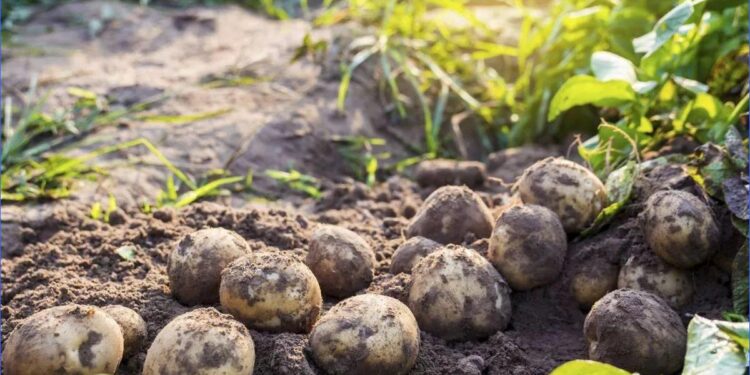The importance of studying
3. Farm management & crop production techniques
Guta practices crop rotation by renting land from others. He uses the recommended spacing and applies recommended fertilizer rates. His crops are regularly monitored by him and others who have sufficient knowledge of potato production. Because of his good farm management skills and cropping techniques, he gets yields up to 40 t/ha in 120 days. During the main rain season, late blight becomes his major problem, although the two varieties (Gudene and Belete) resist the fungus to some extent. He uses a systemic fungicide Ridomil gold to control late blight (in the opinion of experts, he sprays more than needed and a continuous use of systemic fungicide may lead to metalaxyl resistance). He is willing to take a refresher course to reduce the frequency of spraying and alternate chemicals. He is open to all this and highly appreciates trainings given by the government and CIP.
4. Sustainable production and storage of potatoes
Guta produces two potato crops a year. The 2 seasons are: the short rains (February to May) and long rains (June to September) under rain-fed conditions. This permits him to have fresh potatoes for most of the year. He has several Diffused Light Stores (DLS) in which his seed potatoes are stored until sold or planted by himself. With his excellent yields and good quality, his income is good. He sells seed potatoes at about US$ 30/100 kg and ware potato at about US$17/100 kg. Moreover, his training on GAP and seed management enables him to get high yields making his potato production sustainable. Guta says that his life is intertwined with that of potato and says even if the price of 100 kg potato drops to less than US$ 1, he wouldn’t quit potato production.







